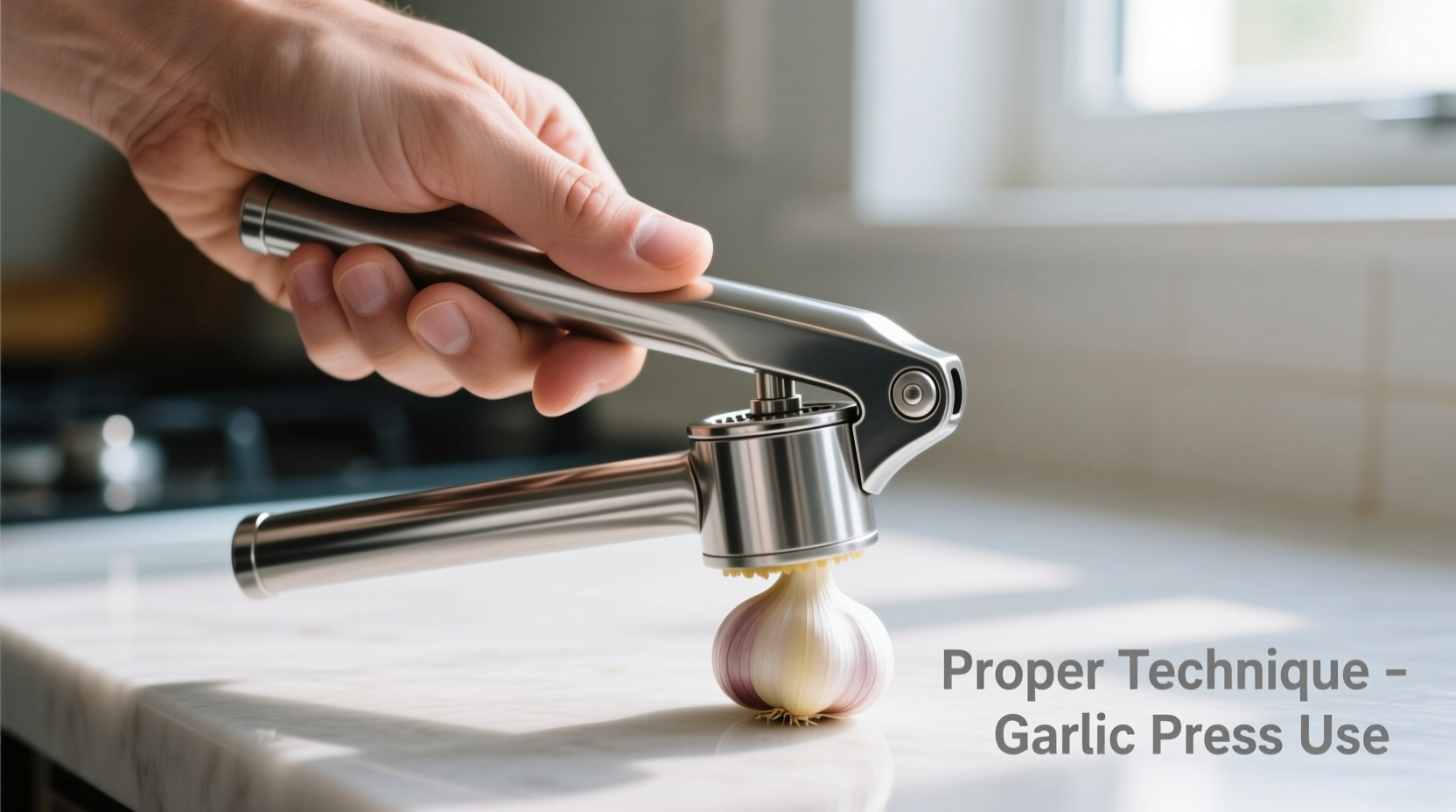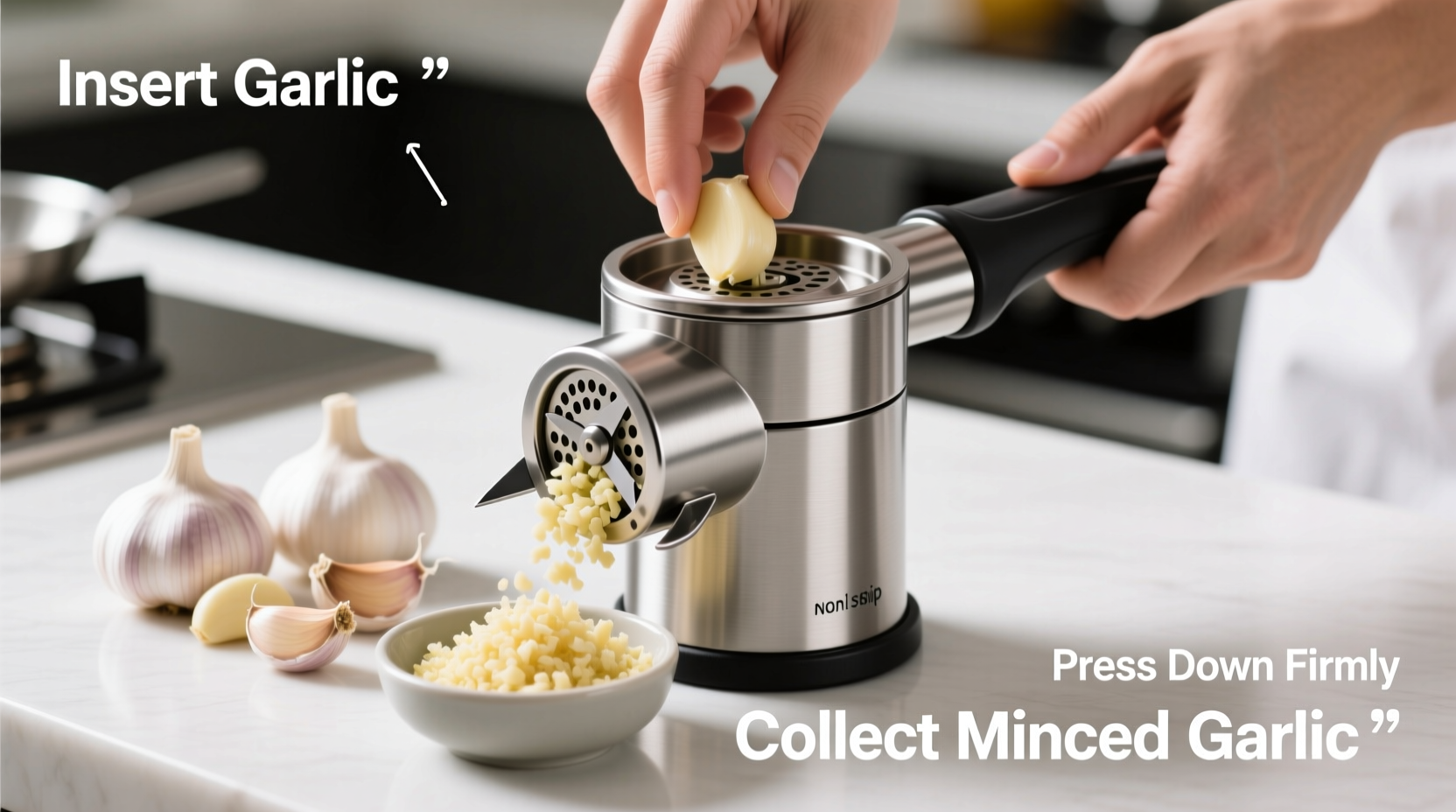The Essential Guide to Using Your Garlic Mincer Like a Pro
Garlic mincers transform whole cloves into aromatic paste with minimal effort, but improper technique leads to frustrating clogs and wasted garlic. Understanding the correct usage method ensures you extract maximum flavor while extending your tool's lifespan. Whether you're using a traditional handheld press or a modern electric model, these evidence-based techniques deliver restaurant-quality results at home.
Preparing Your Garlic for Perfect Results
Start with fresh, firm garlic cloves that haven't sprouted. Older garlic contains more moisture and fibers that cause clogs. Professional chefs recommend chilling cloves for 15 minutes before mincing - this firms the texture and reduces sticking. When peeling, leave the root end intact as this helps push the garlic through the press.
Step-by-Step Usage Technique
Follow this professional workflow for flawless minced garlic every time:
- Prep your workspace with a small bowl underneath to catch minced garlic
- Place 1-2 cloves in the chamber (overfilling causes jams)
- Position your hands with thumbs on top handles, fingers wrapped securely around sides
- Apply steady, even pressure while pressing downward
- Twist slightly at the bottom of the press motion to release residual garlic
- Scrape the grid with provided cleaning tool or small brush

Troubleshooting Common Problems
Even experienced cooks encounter issues with garlic presses. Here's how to solve the most frequent challenges:
Dealing with Clogs
Clogs occur when garlic fibers tangle in the grid holes. Never force the press when resistance increases - this damages the mechanism. Instead:
- Release pressure and twist the handles slightly
- Use the cleaning rod (included with most models) to push from the opposite side
- For stubborn clogs, soak the grid in warm soapy water for 10 minutes before cleaning
Minimizing Waste
Up to 30% of garlic can remain trapped in lower-quality presses. Reduce waste by:
- Using the "twist-and-release" technique at the bottom of each press
- Choosing models with conical chambers that direct garlic toward the grid
- Running a small knife along the grid's exterior to collect residual paste
| Mincer Type | Best For | Special Technique | Cleaning Difficulty |
|---|---|---|---|
| Traditional Lever Press | Daily home cooking | Two-handed pressing with twisting motion | Moderate (requires grid removal) |
| Roswheel Design | Large batches | Rolling motion with consistent pressure | Easy (self-cleaning mechanism) |
| Electric Mincer | Commercial kitchens | Feed cloves slowly through chute | High (multiple components) |
| Tube Press | Travel/kitchenettes | Push plunger with firm, steady motion | Very Easy (one-piece design) |
Context-Specific Usage Tips
Different cooking scenarios require adjustments to your garlic mincing technique:
- For raw applications (salads, dressings): Use minimal pressure to create a finer paste that distributes evenly
- For cooked dishes (sauces, stews): Apply full pressure to extract maximum juice and oils
- When using older garlic: Add a single grain of salt to each clove before pressing to reduce fiber content
- For small quantities: Freeze cloves for 5 minutes to firm them before pressing
Maintenance for Long-Term Performance
Proper care prevents corrosion and maintains optimal function. The Culinary Institute of America recommends cleaning garlic presses immediately after use to prevent acidic garlic residue from damaging metal components. Never place in dishwasher unless manufacturer specifies it's safe - the high heat and harsh detergents degrade the mechanism over time.
For stainless steel models, occasional treatment with food-grade mineral oil preserves the moving parts. Carbon steel models require thorough drying to prevent rust. Store with the press in open position to maintain spring tension.
Safety Considerations
Garlic presses generate significant force that can cause injury if mishandled. Always keep fingers clear of the pressing mechanism. When cleaning, handle the grid carefully as the small holes remain extremely sharp. The National Kitchen & Bath Association reports numerous hand injuries annually from improper garlic press usage - most preventable with proper technique.











 浙公网安备
33010002000092号
浙公网安备
33010002000092号 浙B2-20120091-4
浙B2-20120091-4